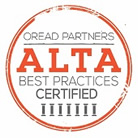Title Tale: Zombie Mortgages
Written By: Kevin Weaver, Underwriting Counsel
Do you ever wonder why title companies concern themselves with unreleased mortgages that are 15 or 20 or even 25 years old, especially when the lender is no longer in business? What could possibly happen, right? Who’s going to come knocking on the homeowner’s door after all this time? Well, unfortunately, there are enough door knockers that our industry has a name for these seemingly dead liens. They are called zombie mortgages. Like creatures from The Walking Dead, they rise up against unsuspecting homeowners and, in some cases, cause the havoc one would expect. One homeowner pulled up to her house to find numerous cars and officials wandering around with clipboards taking notes. When asked, the head honcho informed her the home was being sold in foreclosure. In another case, a $700,000 home was sold at auction for $170,000, twice as much as the face amount of the mortgage due to interest and penalties. And these are not isolated cases. Although accurate numbers are hard to come by, it is estimated New York alone has at least 10,000 old second mortgages that had foreclosure activity initiated on them in the past two years. In Maryland, a researcher found over 500 mortgages that had been in default and unpaid for more than a decade but are now in foreclosure.
How does this happen? It’s a combination of factors. In some instances, borrowers claim they were told their second mortgages were forgiven as part of loan modifications. In others, the lender is out of business, and the homeowner was never notified as to who now owns the mortgage on their property. Mortgage-backed securities also play a large part. Thousands of loans are bundled together and sold to investors. Sometimes they are sold at rock bottom prices by failing banks, especially fifteen years ago when the bottom was falling out of the market. In one case 9,000 loans were sold to an investor for $6,000. Some of those rock bottom acquisitions weren’t productive back then, what with first mortgages ahead of them and declining home values, but now that home prices are at historic levels, they are starting to pay off for the investors. It only takes a few of those 9,000 loans that were purchased for less than a dollar each to make a handsome return on that investment.
Take a minute to research zombie mortgages, and you’ll read some of the horror stories about how these living dead things can ruin people’s lives. The next time you are irritated because you think your title company is dragging its feet on clearing a lien, remember that we are looking out for three parties – ourselves (what title company wants to pay a claim?), the lender (who wants to deal with a claim?), and the borrower (who wants to lose their property?). That requires an extra level of care to determine what risks the old mortgage poses to each party. Some title companies may always require a Release no matter what. Others may remove it no matter what. Neither path seems designed to protect all the parties. A little research can go a long way. Maybe we can track down whoever owns the assets of a defunct company. Maybe there is subsequent financing that’s been insured. Maybe the credit report is revelatory. Maybe the borrower has documentation regarding payoff of the loan, like a Settlement Statement from a newer loan or a letter from the lender acknowledging payment.
Enough maybes can add up to information almost as good as a Release, but sometimes gathering that information takes time. Just remember that your title company wants to close the loan as much as you do, but sometimes killing a zombie is not as easy as it looks in the movies and on TV.








